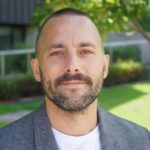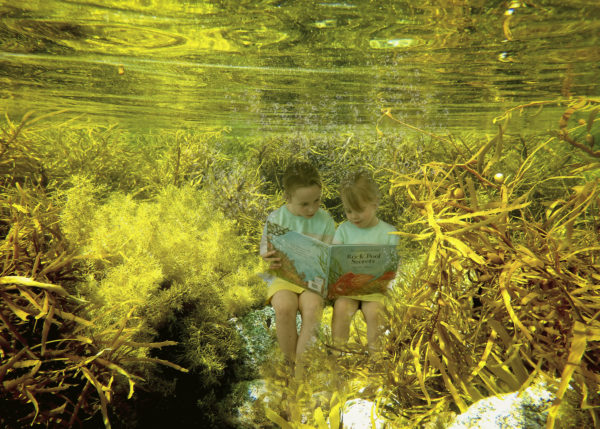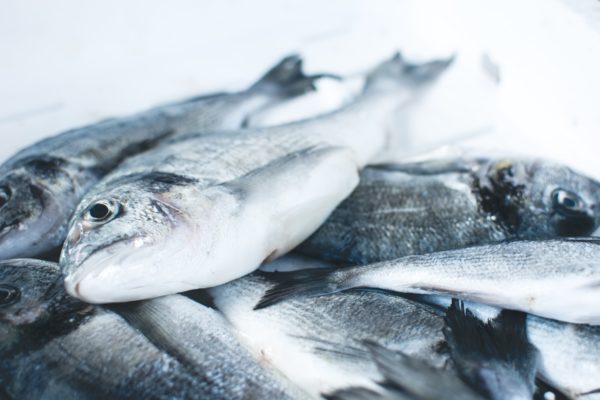The research seeking to understand how bushfire management partnerships benefit the social and ecological resilience of Indigenous and non-Indigenous peoples.
The work of a social scientist at Deakin University will support meaningful future partnerships with Indigenous leaders in southern Australia around bushfire management techniques.
As part of their collaborative research, Dr Timothy Neale and his colleagues are investigating how best to build intercultural, natural hazard management partnerships between Indigenous peoples and others.
This work will contribute to policy on how natural hazard risks are managed by government agencies and the wider community.
The research is also seeking to understand how bushfire management partnerships benefit the social and ecological resilience of Indigenous and non-Indigenous peoples.
Decolonising experiments
Dr Neale says understanding how best to engage in respectful partnership with Indigenous peoples will be crucial in supporting the development of public policy that reduces and protects against natural hazard risks.
“We have to understand that, in Australia and elsewhere, many Indigenous peoples’ past and present experiences of sharing their knowledge have frequently been negative and exploitative,” Dr Neale says.
“It’s pretty galling, if you think about it, to follow up centuries of dispossession by asking for more.
“As Aboriginal scholars and activists have been saying for a long time: non-Indigenous peoples have to give up some of their power and control if they want to work together.
“We have to start from the premise of their rights, as the First Peoples of this place, to speak authoritatively about Country.”
During one of the project’s case studies, Dr Neale conducted long-term fieldwork with Dja Dja Wurrung people on Dja Dja Wurrung Country – which mostly overlaps with the Murray Goldfields region – to learn about their ongoing bushfire management partnership with government agencies.
There, several djandak wi burns (sometimes called ‘Country fire’ or ‘healthy fire’ burns) have been led by Dja Dja Wurrung peoples since 2017.
Significantly, these burns are believed to be among the first Aboriginal-led burns on public lands in southeast Australia since settlement more than 180 years ago.
As Dr Neale and several Dja Dja Wurrung colleagues have contended, such collaborative partnerships can be understood as “decolonising experiments”, in the sense that they involve progressively testing how to create more equitable relationships between people and Country.
Respecting knowledge of Indigenous bushfire management
According to the Commonwealth Scientific and Industrial Research Organisation (CSIRO), the bushfires experienced in the 2019-20 season have burned more than 10 million hectares of land in southern Australia, greater than the combined area burned in the 2019 Black Saturday and 1983 Ash Wednesday bushfires.
The ancestors of contemporary Aboriginal peoples applied fire to shape their surroundings for more than 65,000 years and now Indigenous fire management practices are increasingly identified as a potentially beneficial tool for mitigating fire hazards over future fire seasons.
Typically, Aboriginal peoples have been marginalised from contemporary bushfire management since colonisation in southern Australia.
One key way to reduce this inequity, and more fully support Indigenous fire management, is the development of strong partnerships with Indigenous groups.
For instance, ongoing collaborations between Dja Dja Wurrung peoples and the Victorian Government began with the signing of the Recognition and Settlement Agreement in 2013.
The first of its kind, the agreement was key to the creation of partnerships between Dja Dja Wurrung peoples and government agencies.
Using this and other examples, the research team is aiming to understand the past and current experiences of diverse Aboriginal groups working with settler government natural hazard management agencies.
This will lead to the development of better frameworks that support equitable partnerships between Indigenous and non-Indigenous individuals and organisations.
‘Walking together’ to reduce bushfire risk
The research project is providing crucial advice to research partners including Indigenous communities and government agencies about the opportunities and challenges for expanded and enhanced collaborative natural hazard management.
Key successes for the project include publications, further research funding from the Bushfire and Natural Hazards CRC and submissions to several government inquiries.
In 2020, Dr Neale was called as an expert witness to the Royal Commission into National Natural Disaster Arrangements and provided evidence based on this research.
Dr Neale’s evidence was subsequently cited in the Royal Commission’s recommendations that all levels of government should engage further with Traditional Owners as fire and land managers.
Dr Neale explains that there is an encouraging trend of government agencies and others beginning to treat Indigenous peoples as partners with self-determination, not one stakeholder among others.
Projects and programs are becoming more supportive of Indigenous people’s aspirations to heal and bring people back to Country, focusing less on just managing natural hazard risk or some other calculable policy goal.
In a recent paper, Dr Neale and several Dja Dja Wurrung colleagues reflected on the ideals of past Dja Dja Wurrung elders which encourage ‘walking’ or cooperating with non-Indigenous people.
As one interviewee explained: “…at the end of the day we’re better off walking together.
The last 50 years, we could have walked away [from the government], but like Uncle Doug [Nicholls] and all them said ‘we’re going to walk together’.’’
For more information on cultural burning, read on at Inside Story.
Dr Timothy Neale is a DECRA Senior Research Fellow within the Alfred Deakin Institute.
Image: A djandak wi (“Country fire” or “healthy fire”) burn on Dja Dja Wurrung Country, Victoria, in April 2018. Photo courtesy of Timothy Neale




